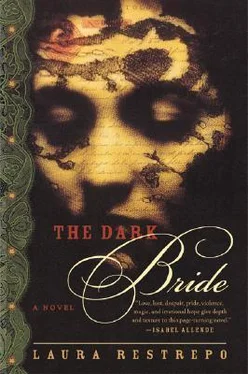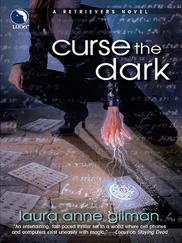“How did they dress, don Alonso?”
“With the elegance of poor ladies who wanted to look beautiful.”
“No cleavage or bright-colored fabrics?”
“Cleavage, yes, and bright-colored, showy dresses too, but nothing that would call attention with vulgarity. The famous striptease, now obligatory in any brothel, would never have occurred to anyone at the Dancing Miramar and the other cafés in La Catunga. Instead we enjoyed dance contests and there were prizes and celebrations for the couple who performed the best tango, rumba, or cumbia . It was another world and things gave off different colors, and prostitution, forgive me for expressing a personal opinion, wasn’t disgraceful for the woman who practiced it or for the man who paid for it.”
“Even though there was payment?”
“The petrolero worked hard and earned his money. The prostituta worked hard and ended up with the petrolero ’s money. They say that love for money is a sin, but I say that it’s nothing more than the law of economy, because bread doesn’t fall from the sky for anyone. And don’t believe what they tell you, that amor de café is pleasure and not love. When some fellow worker was smitten by a particular woman, the rest of us managed to stay away from her and not interfere.”
“Were you always successful?”
“No, not always. There were a few crooked girls who made their men suffer until they drove them to their deaths. No one confronted them for it because they were within their rights, and anyone who fell in love with a woman from that world was at the mercy of his own good luck. But in general, love between couples was respected and there were numerous cases of sworn and upheld fidelity, by choice of the couple and not because of any other circumstance. I can tell you the names of petroleros who had children in common agreement with prostitutes, without the women leaving the profession. It was a simple world because it wasn’t hypocritical. It wasn’t hypocritical but that doesn’t mean that it was heartless. It may sound ridiculous to you, but there was a certain feeling of chastity in all of that. A certain kind of chastity, you know, and a certain elegance. To understand it you had to have seen them, so proudly gathering their skirts when they danced a pasodoble .”
“Were you in love with any of them, don Alonso?”
“It’s a story that wouldn’t be honorable to confess because I am the widower of a good and noble woman. Out of respect for the dead. But I will tell you one thing, many of us were in love with prostitutas , and with the passing of the years and a look back in time, now that we’re closer to death, we have to recognize that they were the great passion of our lives.”
As a young boy, Sacramento wanted to be a saint. No one knows how long and dark the nights of a lonely, sleepless boy can be under the high, resonant ceilings of a monastery, his heart knotting and twisting as he begs forgiveness from God the Father, who sees everything because he’s a great swollen eye, a voyeuristic, furious, and triangular eye that would blink with benevolence only toward those who become a model of chastity, humility, and sacrifice. No one can measure the depths of loneliness of a boy who wants to be a saint.
Especially when the mercy that this child pursues is not only for his sins but for the sins of the whole world, and above all for the shame of his mother, whose fruit is this very child, conceived by her in sin. At the charity school for orphans and abandoned children that the Franciscan fathers presided over in Tora, where Sacramento attended his first years of elementary school — the only studies he would complete in his life — the majority of the students dreamed of becoming petroleros when they grew up. One wanted to be a butcher like his father and grandfather and another spoke of training to become a fighter pilot. But Sacramento had decided to reach sainthood. I was told this by Father Nataniel, who was one of his teachers and spiritual mentors.
Sacramento himself still keeps alive the memory of the morning they sent him to the sacristy to collect the prayer book that the rector had left behind. He was about to complete the errand when he suddenly found himself alone in the deserted chapel, panic-stricken by the looks of so many saints scrutinizing him from their high, deep niches, shrouded in the quiet violet light filtering through the stained-glass windows.
“The saints were wooden and stared at me,” he tells me, “from glass eyes that cast real gazes. The one that terrified me most was Saint Judas Tadeo, with his sharp ax gripped tightly in his right hand, the patron saint of criminals because he is the only one with a weapon. You understand that with all of the violence flourishing in those days, Saint Judas Tadeo was highly revered and favored with votive candles and offerings, but I suspected that he looked harshly at me, as if reproaching me, threatening me with his decapitating ax, and I attributed to him the ability, with those blue glass balls he had in his sockets, of being able to see deep inside me and observe that I was failing in my commitment to sacrifice and suffering.”
Lent arrived rainy and charged with remorse, and every boy was supposed to choose, according to the dictates of his own conscience, the sacrifices he was willing to make, step by step along a stairway to heaven that began with privations like giving up the milk candies that were served for dessert or getting up to pray an hour earlier than was mandatory, and that ascended through fasts and vigils to reach self-inflicted injuries to the flesh, such as walking barefoot over the pebbles on the patio or tying the rough jute rope worn by the Franciscans around one’s waist under his shirt. In the hands of the penitent orphans of Tora lay the power of enduring suffering in exchange for cleansing humanity of the stains of sin, and no one knows how much a charge like that weighs and overwhelms when it falls on the shoulders of a young boy.
“Don’t be an idiot,” Sacramento’s friend Dudi Abdala, who was a Turk and an atheist, said to him. “Go ahead and eat your milk candies, don’t you see that if you don’t the rector will eat them all himself?”
But Sacramento, determined to become a saint at any price, genuflected and ignored the temptation.
“If you’re not going to eat them, at least give them to me,” implored Dudi Abdala, who besides being Turkish and an atheist was a glutton. “It’s all the same to God…”
“Because of you mankind is going to get screwed up,” Sacramento reproached him, and left the candy on the tray.
At the entrance to the chapel the Franciscan brothers had placed a jar with garbanzo beans and they hung a little cloth bag around each boy’s neck, in which he could place one garbanzo for each sacrifice he inflicted upon himself. The garbanzos were the irrefutable and tangible proof of the degree of goodness achieved, and the boys who suffered most would proudly display the heaviest bags.
“I struggled a great deal to be the best of all of them,” Sacramento tells me. “I injured my feet on the pebbles and I wore the jute rope, because I knew that I, being the son of a sinner, had to do twice as much as the others to achieve the same result. But I was hiding an unconfessable sin, falseness and pride, because I allowed the devil to push my hand and place unearned garbanzos in my bag so that it would look especially bulky. The full terror of this fell on me that morning as I stood alone in the chapel, when Saint Judas let me know that he was aware of my lies, and from then on he tormented my nights, never letting me sleep. Hour after hour until dawn I could hear the rasping of his ax against the sharpening stone, and I expected that at any moment he would appear to chop off my head with a single blow. In those days I used to cry a lot, mostly over my mother, because I loved her, although I had never seen her again after she left me. The priests told me not to waste my suffering on her because she would never have God’s forgiveness, she was already condemned and there was nothing I could do about it.”
Читать дальше












